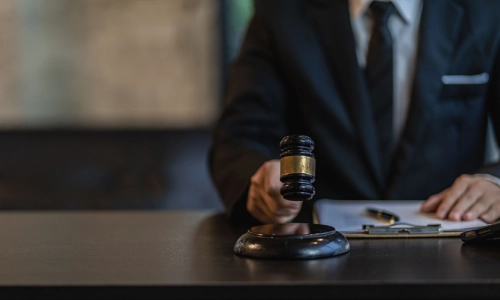Book a Consultation
Find out why so many clients appreciate the amount of work we put into their case.
"*" indicates required fields
Call 24/7
When you’ve been injured due to someone else’s negligence, a personal injury lawyer becomes your advocate, handling the legal process so you can focus on recovery. From building your case to negotiating with insurers, their role is to protect your rights and pursue the compensation you deserve.
 A personal injury lawyer in Utah provides legal support to individuals who have suffered injuries in accidents caused by the negligence or recklessness of others. Whether it’s a car crash, slip and fall, or workplace incident, these attorneys understand state-specific laws and procedural requirements that affect your claim.
A personal injury lawyer in Utah provides legal support to individuals who have suffered injuries in accidents caused by the negligence or recklessness of others. Whether it’s a car crash, slip and fall, or workplace incident, these attorneys understand state-specific laws and procedural requirements that affect your claim.
The process begins with an initial consultation, during which a personal injury lawyer evaluates the facts of your case. This meeting is typically free and confidential.
During this review, you’ll describe how the injury occurred, what medical treatment you’ve received, and how the incident has affected your daily life and finances. The attorney will assess whether there’s a viable claim based on factors like negligence, liability, and available evidence.
This consultation also allows you to ask questions and gain a better understanding of how the legal process works. The lawyer will explain your rights, outline possible outcomes, and discuss the following steps if you decide to proceed.
If your case has merit, they may offer representation under a contingency fee arrangement, meaning you pay nothing unless compensation is recovered.
Thorough investigation is the foundation of a strong personal injury case. Your attorney’s goal during this phase is to collect, preserve, and analyze all relevant evidence that supports your claim and proves the other party’s liability.
The evidence-gathering phase is methodical. Every piece of information strengthens your case, helps determine liability, and supports the damages you’re seeking.
Personal injury attorneys know what to look for and how to secure it before it’s lost or destroyed.
Establishing liability in a personal injury case involves proving that another party was legally at fault for your injuries. A personal injury lawyer must demonstrate four key elements:
In Utah, personal injury cases are subject to modified comparative negligence. This means if you are found partially at fault, your compensation may be reduced by your percentage of fault.
If you are 50% or more at fault, you cannot recover any damages.
Insurance companies are not on your side. A personal injury lawyer handles all communications with insurers, ensuring you’re not pressured into accepting a lowball offer.
Working with a local attorney means having someone who understands Utah courts, judges, and legal nuances, improving your odds of a successful outcome.
Your lawyer offers case-specific advice, helping you understand your options and make informed decisions throughout the process.
Most injury lawyers work on contingency. You pay nothing up front; they only get paid if you recover compensation.
You’ll receive regular updates on case progress. Your attorney also manages deadlines, statutes of limitations, and responses to legal filings.
Even seemingly minor accidents can lead to significant complications. Our lawyers help you navigate the legal and financial aftermath.
Our lawyers know how to properly document injuries, gather evidence, and account for both immediate and future costs. Without legal guidance, you risk undervaluing your claim or missing critical deadlines.
Injury lawyers commonly handle cases involving:
We also manage claims involving soft tissue injuries, burns, internal trauma, and emotional distress. Each type of injury presents unique legal and medical challenges that require experienced handling.
Legal representation ensures your rights are respected and increases your chances of securing full and fair compensation. Attorneys know how to challenge insurance company tactics, calculate long-term damages, and pursue recovery for pain, suffering, lost wages, and future medical care.
In Utah, the statute of limitations for most personal injury claims is generally four years from the date of the injury. This means you typically have four years to file a lawsuit in court. However, there are exceptions to this rule, such as cases involving minors or certain types of claims, which may have different time limits.
It is crucial to consult with a personal injury lawyer to understand the specific deadline that applies to your case and ensure your claim is filed within the appropriate timeframe. Failing to file within the statute of limitations can result in the permanent loss of your right to seek compensation.
When the unexpected happens, you need a legal team that stands ready to fight for your future. At Valley Law Accident & Injury Attorneys, we are dedicated to providing compassionate, effective legal representation for accident victims throughout Salt Lake City.
Don’t let the complexities of the legal system or aggressive insurance companies overwhelm you. Let us take on the burden so you can focus on healing and rebuilding your life.
If you or a loved one has been injured due to someone else’s negligence, don’t delay. The sooner you act, the stronger your case can be.
Contact Valley Law today at (801) 810-9999 for a free, no-obligation consultation. Let our experienced personal injury attorneys assess your situation, explain your rights, and help you understand the compensation you may be entitled to.
Get in touch


2021 and 2022 Gold Winner for Top Law Firm by Salt City Best
Call 24/7 801-810-9999